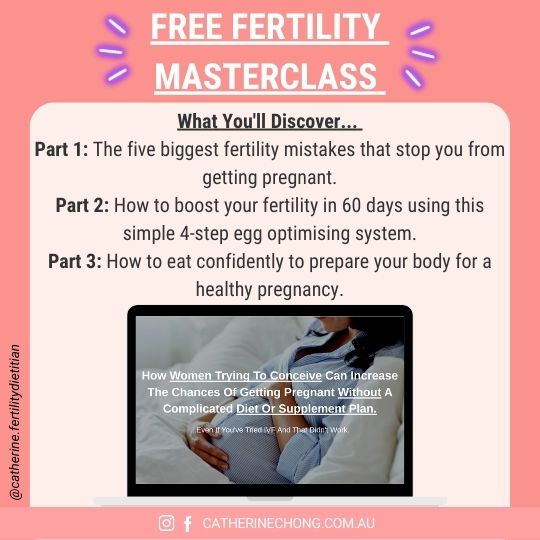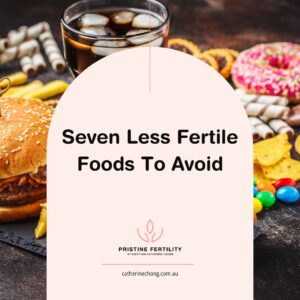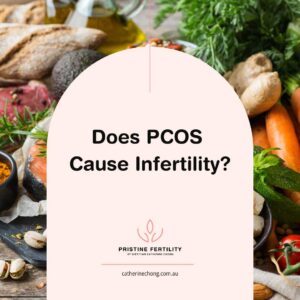When planning for a baby, couples often recognise the significance of egg quality in determining their fertility.
The quality and health of eggs play a crucial role in achieving successful conception, and there are various measures women can take to enhance their egg quality.
In this post, we’ll share tips and tricks to help you increase your chances of having a healthy pregnancy by improving your egg quality.
Understanding The Importance of Egg Quality
Egg quality plays a crucial role in determining a woman’s fertility. Women are born with all the eggs they’ll ever produce. During fetal development, a female fetus has around 6 million eggs. By birth, the number of eggs decreases to approximately 1 million. By the onset of puberty, only about 300,000 eggs remain.
As we age, the natural decline of the number of eggs we have accelerates, especially once we reach 30 years of age. While the quantity of eggs declines with age, the quality of eggs also decreases, which means they’re more prone to chromosomal abnormalities and other issues. Making it more challenging to conceive and carry a healthy pregnancy.

What Does Egg Quality Mean?
When trying for a baby, egg quality becomes vital for women. It refers to an oocyte’s capacity (an egg or ovum) to go through the crucial stages of maturation, fertilisation, embryonic development, and, ultimately, a healthy pregnancy.
Poor egg quality or aneuploidy refers to an abnormal number of chromosomes in an egg cell, usually resulting from errors during cell division. In humans, a normal cell has 46 chromosomes, with 23 inherited from each parent.
Aneuploidy can occur when a cell has an extra or missing chromosome, leading to genetic imbalances that can cause various health problems, including developmental abnormalities and intellectual disability.
In fertility, aneuploidy is associated with decreased egg quality and lower chances of successful fertilisation and implantation during assisted reproductive technologies such as in vitro fertilisation (IVF).
Aneuploidy affects ∼10–25% of eggs in women in their early 30s and more than 50% in women over 40. Aneuploidy is also a leading cause of pregnancy loss and birth defects.
Can You Test For Egg Quality?
Currently, no test is available to measure egg quality, except through IVF. During IVF, the quality of the oocyte can be evaluated by observing how the resulting embryo develops. Egg quality typically relies on fertilisation and pregnancy outcomes, with IVF and embryo implantation rates being key indicators.
On the other hand, Anti-Mullerian Hormone (AMH) tests can indicate a woman’s ovarian reserve, indirectly reflecting the potential for high-quality eggs.
Can You Improve Egg Quality?
Some small egg sacs called primordial follicles in the ovaries are activated daily to start growing. This process is called folliculogenesis and takes around 16-24 weeks. During this time, the egg and its surrounding cells undergo changes that release a mature egg from a follicle.
After the release of a mature egg from an ovary, the egg will travel down the fallopian tube towards the uterus. During this journey, the egg waits for fertilisation by a sperm. If sperm can penetrate the egg, fertilisation occurs, and the resulting embryo will continue to travel towards the uterus.
The embryo will then implant in the uterine lining and develop into a fetus. However, if fertilisation does not occur, the egg will eventually be absorbed by the body, and the menstrual cycle will continue as usual.
The process of optimising egg quality typically requires a significant amount of time, with experts recommending a minimum of 4-6 months to achieve meaningful results. This is because the eggs that are ovulated are the ones that have been developing for the past few months, and the quality of those eggs is affected by various factors such as age, lifestyle, and environmental factors.
Factors That Can Impact Egg Quality
Poor egg quality is often caused by natural aging, which can reduce the efficiency of the egg’s energy source (mitochondria) and increase stress on the egg. In younger women, poor quality may also be caused by genetic mutations that can cause severe egg and embryo development defects.
In addition to age and genetics, other factors can impact the quality of eggs. These include environmental factors, such as exposure to toxins, and diet and lifestyle choices, such as smoking and drinking alcohol. Stress levels and overall body health can also harm fertility and pregnancy outcomes. Both undernutrition and overnutrition can contribute to poor egg quality.
Research has shown that diet is crucial in maintaining and improving egg quality, particularly in addressing age-related changes in the egg’s epigenetics. This is because the epigenome, which controls the expression of genes in the egg, is sensitive to changes in diet and can be influenced by specific nutrients such as folate, omega-3 fatty acids, and antioxidants.
Therefore, adopting a healthy and balanced diet that includes nutrient-dense foods such as fruits, vegetables, whole grains, lean proteins, and healthy fats can help improve egg quality over time.
Bottom Line:
- Egg quality is crucial in determining a woman’s fertility and chances of having a healthy pregnancy.
- Poor egg quality or aneuploidy can cause chromosomal abnormalities, genetic imbalances, developmental abnormalities, intellectual disability, miscarriages, and birth defects.
- While no test is currently available to measure egg quality directly, test like Anti-Mullerian Hormone (AMH) can indicate a woman’s ovarian reserve, indirectly reflecting the potential for high-quality eggs.
- Diet, environmental factors, lifestyle choices, stress levels, and overall body health can impact the quality of eggs. Studies suggest that it may take 4-6 months to optimise egg quality through diet changes.
Need More Help?
Are you seeking additional support and guidance in optimising your fertility through a personalised nutrition plan?
Schedule a nutrition consultation today and take the first step towards achieving your fertility goals.
You May Also Be Interested In
Disclaimer: Content on this website is provided for information purposes only and should not be replaced with medical advice. We recommend you discuss with your healthcare providers (doctor, dietitian, pharmacist, etc.) any medical questions for diagnosis and treatment, dietary plan, or use of any medications and nutritional supplements before you make any changes. DietitianChong Pty Ltd shall not bear any liability for reliance by any user on the materials contained on this website.







